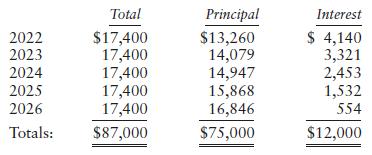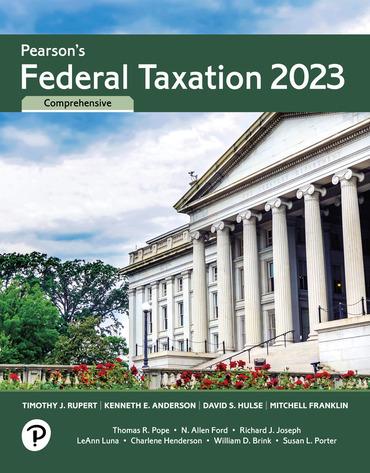Stan Bushart works as a customer representative for a large corporation. Stans job entails traveling to meet
Question:
Stan Bushart works as a customer representative for a large corporation. Stan’s job entails traveling to meet with customers, and he uses his personal car 100% for business use. In January 2022, Stan must decide whether to buy or lease a new car. After bargaining with several car dealers, Stan has agreed to a price of $75,000. If he buys the car, he will borrow the entire $75,000 at a 6% annual interest rate, and his payments will be $1,449.96 per month over 60 months. Annual principal and interest payments are:

If Stan purchases the car, he will not claim Sec. 179 expensing or bonus depreciation, and he will sell the car for $23,000 at the end of five years. If Stan leases it, his monthly lease payment will be $1,120 for 60 months, and he will turn in the car at the end of the five year lease period. (He does not plan to exercise the lease’s option to purchase the car for
$23,000 at that time.) Using present value analysis, is Stan better off buying the car or leasing it? Assume the following in your analysis:
• Stan’s marginal tax rate is 24% each year.
• The lease inclusion amount for each year is $24 (which is the average of the five lease inclusion amounts for a $75,000 vehicle).
• For the alternative of buying the car, Stan discounts cash flows (including tax savings) at a 6.2% annual rate. For the alternative of leasing it, Stan discounts cash flows (including tax savings) at a 0.5% monthly rate (one-twelfth of 6%; this 0.5% rate, compounded monthly, is approximately equal to a 6.2% annual rate).
Step by Step Answer:

Pearsons Federal Taxation 2023 Comprehensive
ISBN: 9780137840656
36th Edition
Authors: Timothy J. Rupert, Kenneth E. Anderson, David S Hulse





